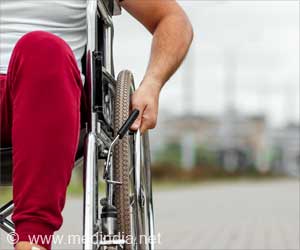Groundbreaking stem cell treatment has helped a paralyzed Japanese patient stand again, offering hope for spinal injury recovery.
- A paralyzed patient stood unaided after receiving stem cell injections
- Two participants showed significant improvement, while two others had less progress
- Stem cells are injected at the injury site to regenerate tissue and restore function
Paralyzed Man Stands Thanks to iPS Cells
Go to source). The success of this trial marks a significant milestone in regenerative medicine. While this is just the beginning, the results hint at a future where stem cell therapies could restore lost functions following spinal injuries, providing a new path for paralysis recovery. However, larger and more comprehensive trials are needed to fully understand the long-term effects of this groundbreaking treatment.
More than 15 million people worldwide are living with #spinalcordinjuries, most of which are caused by preventable trauma like falls, road accidents, and violence. #medindia #stemcells’
Stem Cell Treatment Trial Led by Japanese Experts
The clinical trial, led by Hideyuki Okano, a stem-cell scientist at Tokyo's Keio University, focused on four patients who had suffered paralysis from spinal cord injuries. These individuals received an innovative treatment using neural stem cells designed to regenerate damaged spinal tissue and restore movement.In the trial, one participant received an injection of neural stem cells directly into the site of his spinal cord injury. These stem cells, capable of developing into various types of nerve cells, worked to regenerate spinal cord tissue. Remarkably, after the procedure, this patient was able to stand on his own—an extraordinary leap toward recovery. Another participant also regained use of both arms and legs with significant improvement. However, two other participants saw less dramatic progress, raising questions about the consistency of the treatment’s effectiveness.
Stem Cell Trial Shows Potential, Requires Further Research
The results of this trial were released in March, though they have yet to undergo peer review. Researchers confirmed that the treatment appeared to be safe for the patients, as reported in the journal Nature. However, some experts caution that the improvements might not be solely due to the stem cell treatment but could also be part of natural recovery. Further, more extensive clinical trials are required to confidently attribute the patients' progress to the treatment.Stem Cell Treatment Uses Reprogrammed Cells to Repair Spinal Damage
Stem cells, unique cells that can transform into various types of body cells, were reprogrammed into induced pluripotent stem (iPS) cells for the experiment. These iPS cells, capable of developing into nerve cells, were implanted into the spinal injury sites to repair the damaged tissue. The procedure, which involved injecting two million cells per patient, was carried out between 2021 and 2023 on four men, two of whom were over 60 years old. To prevent rejection, patients were given immunosuppressive medication for six months.Survival Rate of Transplanted Cells Remains a Key Factor in Success
Though the trial showed encouraging results, it remains a small-scale study. Larger trials are essential to determine how effective this treatment is and to identify which patients may benefit the most. A key challenge still facing stem cell therapy is the survival rate of the transplanted cells. Research indicates that most of the injected cells die within hours of being implanted. However, Okano and his team believe that some of the iPS cells survived, continuing to function and aiding in the patients' recovery.In summary, while this stem cell treatment has shown promising results in helping patients regain motor or sensory functions, more research is needed to confirm its long-term effectiveness and determine how it can be widely applied to treat spinal cord injuries.
Reference:
- Paralyzed Man Stands Thanks to iPS Cells - (https://the-tartan.org/2025/03/30/paralyzed-man-stands-thanks-to-ips-cells/)
Source-Medindia














